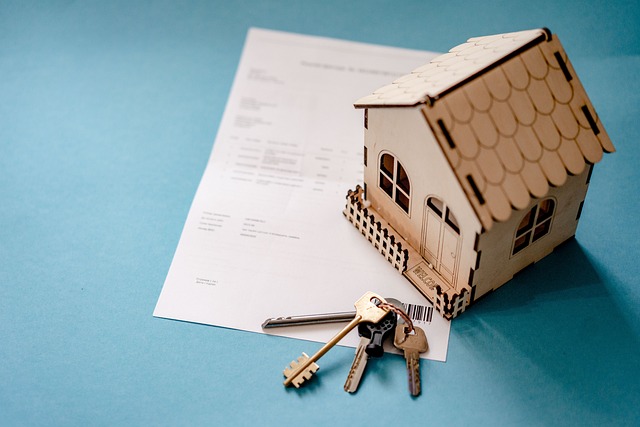Are you considering an Islamic mortgage but not sure how it differs from a traditional
one? Islamic mortgages, also known as sharia-compliant mortgages, are different
from conventional mortgages in that they do not involve interest payments. Instead,
they use alternative financing structures that are compliant with Islamic law, such as
Ijara, Murabaha, and Diminishing Musharaka. In this article, we will explore the main
differences between conventional and Islamic mortgages, and help you understand
the unique features and qualifications of sharia-compliant financing.
Islamic Loans: Understanding the Basics of Sharia-Compliant Financing
3 Most Common Types of Islamic Mortgages
Islamic mortgages, also known as sharia-compliant mortgages, are a unique type of
home financing that are based on Islamic principles of fairness and equity. These
mortgages differ from traditional mortgages in that they do not involve interest
payments, which are considered to be haram (forbidden) in Islam. Instead, Islamic
mortgages use alternative financing structures that are compliant with Islamic law.
Ijara
Ijara is a type of Islamic lease-to-own mortgage. Under this structure, the
lender purchases the property and then leases it to the borrower. The borrower then
makes monthly lease payments to the lender, which includes both the cost of the
property and a profit margin for the lender. At the end of the lease term, the borrower
has the option to purchase the property for a pre-agreed price.
For example, A bank purchases a house for £200,000 and leases it to the customer
for a period of 20 years with a rent of £2,000 per month. The bank also charges a
profit margin of 2% on top of the rent. At the end of 20 years, the customer has the
option to purchase the house for £200,000.

Murabaha
Murabaha is a type of Islamic cost-plus financing. Under this structure,
the lender purchases the property and then sells it to the borrower at a marked-up
price. The marked-up price includes the cost of the property, as well as a profit
margin for the lender. The borrower then makes payments to the lender in
instalments.
For example, A bank purchases a house for £200,000 and sells it to the customer for
£210,000. The customer agrees to pay the bank in instalments over a period of 20
years. The bank charges a profit margin of 5% on top of the purchase price.
Types of Islamic Finance – A Brief Guide
Diminishing Musharaka
Diminishing musharaka is a type of Islamic partnership
financing. Under this structure, the lender and borrower jointly purchase the property
and share in the ownership. The borrower then makes regular payments to the
lender, which gradually reduce the lender’s share of the ownership.
For example, A bank and customer jointly purchase a house for £200,000. The bank
owns 60% and the customer owns 40% of the house. The customer agrees to make
a monthly payment of £2,000 for a period of 20 years. Each month, the customer’s
ownership in the house increases by 1% and the bank’s ownership decreases by
1%. At the end of 20 years, the customer will own 100% of the house.
What are the requirements to be eligible for an Islamic mortgage?
The qualifications for an Islamic mortgage can vary depending on the lender and the
type of mortgage. Generally, lenders will look at factors such as the borrower’s credit
score, income, and debt-to-income ratio. The borrower will also have to demonstrate
that they have the financial means to make the monthly payments on the mortgage.
Additionally, the property to be purchased should be in compliance with sharia laws
and regulations, for example, it shouldn’t be used for haram activities like gambling,
alcohol production or prostitution.
Is it possible for anyone to apply for an sharia-compliant mortgage?
In theory, anyone can apply for an Islamic mortgage. However, the lender will still
need to assess the borrower’s credit-worthiness and ability to make the monthly
payments. Additionally, borrowers will typically need to meet the same requirements
as they would for a traditional mortgage, such as having a good credit score and a
stable income. It’s worth noting that not all countries or regions have a well-
established Islamic finance industry, so it might be harder to find an Islamic
mortgage in some areas. It’s also worth mentioning that Islamic mortgages are
based on sharia laws, so it’s advisable for borrowers to be familiar with these laws
and principles before applying for an Islamic mortgage.
What are the potential risks associated with an Islamic mortgage?
Islamic mortgages, like any other type of mortgage, come with certain risks. One of
the main risks is that the value of the property may decrease over time, leaving the
borrower with a property that is worth less than the outstanding balance on the
mortgage. Additionally, the lack of standardisation in the Islamic mortgage market
can make it difficult for borrowers to compare different options and understand the
terms of their mortgage. Another risk is that the terms of an Islamic mortgage can be
complex and difficult to understand, and borrowers may be uncertain about how their
payments will be applied to the mortgage balance.
How much down payment is required for an sharia-compliant mortgage?
The deposit required for an Islamic mortgage can vary depending on the lender and
the type of mortgage. However, typically, borrowers will need to provide a deposit of
at least 10-20% of the purchase price of the property. The deposit amount can also
vary based on the type of Islamic mortgage you choose and your credit score.
Where can you find options for Islamic mortgages?
There are several options for finding an Islamic mortgage as a sharia-compliant
buyer. Many Islamic banks and financial institutions offer Islamic mortgages, and you
can also find Islamic mortgages through some conventional banks that have Islamic
finance divisions. It’s also possible to find Islamic mortgage providers through online
platforms, or by consulting with an independent financial advisor who specializes in
Islamic finance. It’s important to do your research and compare different options to
find the best Islamic mortgage for your needs.




